7 Nighttime Driving Tips To Help You Have A Safer Journey
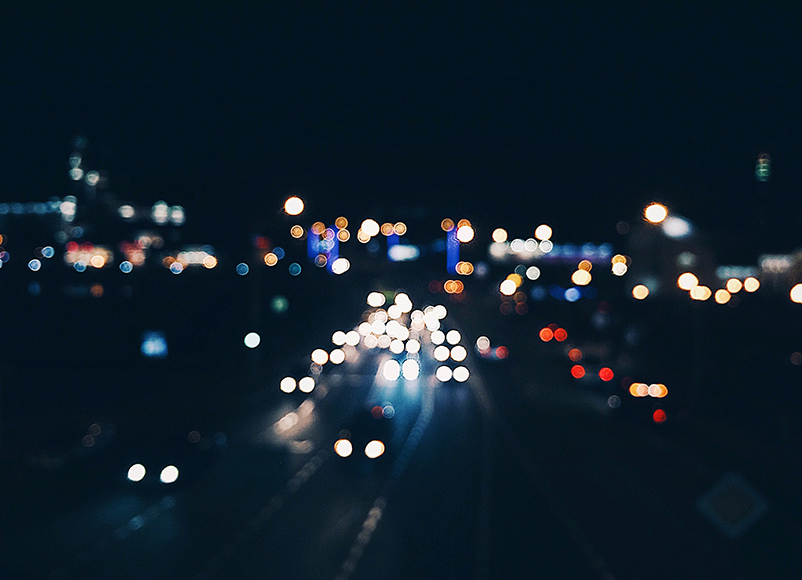
7 Nighttime Driving Tips To Help You Have A Safer Journey
Nighttime Driving can be nerve-wracking for some people. Low visibility increases the risk of a collision with a cyclist, pedestrian or animal. Fatigue can also make you and other drivers less safe on the road. And drunk drivers are more likely to be behind the wheel after dark.
Statistics released by ROSPA show there are 40% more accidents occuring at night in the UK - 629 of which are fatal.
In this article, we take a look at 7 nighttime driving tips you can employ to make Britain’s road safer once darkness descends. But first…
What time does it get dark in the UK?
If you’re driving long distances at night or driving home from work on unlit roads, you should know what times it gets dark in the UK.
During the winter months, civil twilight kicks in around 16:15 and lasts between 30 and 45 minutes. The actual times depend on which part of the UK you’re in and what the weather conditions are on any given day.
In the summer months, it starts to get dark around 21.15 and in Spring and Autumn, the sun sets around 19.45 and 20.30.
In the north of Scotland, civil twilight can last between about 30 minutes and 1 hr 15 minutes depending on the time of year.
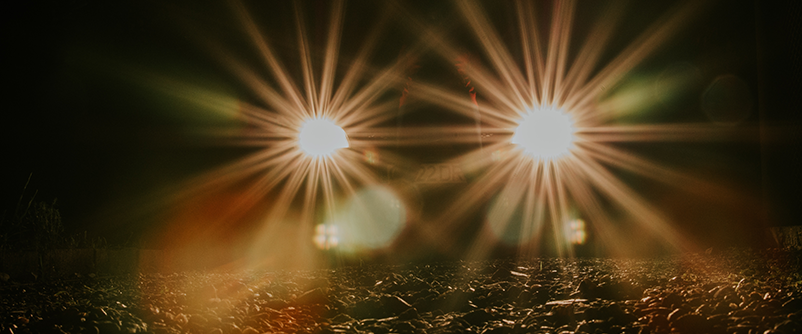
Use the Right Lights
Knowing which lights to use when driving at night is important for yourself and other road users.
When you’re driving on unlit roads, always use your full beam, but dip them when a vehicle is approaching from the opposite direction, coming towards you. High beams can impair a driver’s vision and disorientate them thus increasing the risk of a collision.
You should also dip your headlights when you are approaching a vehicle in front of you from behind. A full beam will reflect off the rear-view mirror of the driver in front and make it difficult for them to see the road.
Bear in mind that our eyes take longer to adjust at night. Nighttime driving is even worse for people with night blindness and drivers that are getting on in years. It is thought that our eyes take longer to recover from glare as we get older by up to 9 seconds.
Keep A Safe Distance
Driving too closely behind the car in front is never a good idea - but nighttime driving increases the risk of an accident. It’s harder to judge speed, distance and objects at night.
The reduced visibility at night means you cannot see into the distance and read the road like you can during the day. That means your reaction to the car stopping sharply in front of you will be slower.
In addition, if you are too close to the car in front of you, the glare from your headlights could impair their vision. Driving at night calls for us to be more considerate of other drivers. As mentioned above, it takes our eyes longer to adjust in the dark and a driver with impaired vision may not be able to see the road properly.
Not only that but driving too closely behind another vehicle could also make the driver nervous - particularly if they are older or have night blindness. Drivers that do not feel confident about their driving skills are a potential threat to themselves, other road users and pedestrians.
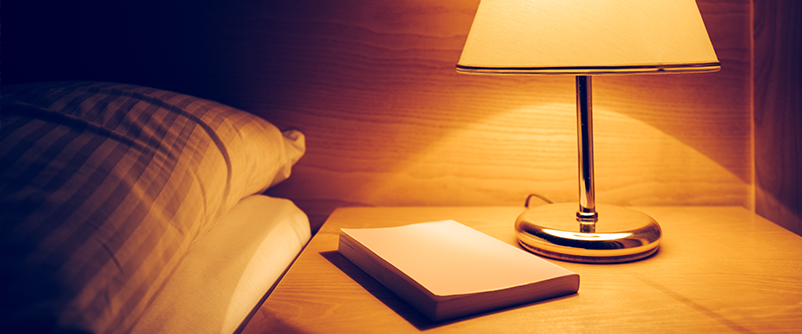
Don’t Drive If You’re Tired
Fatigue is one of the leading causes of nighttime driving accidents. Most road traffic accidents caused by drowsiness happen between midnight and 6 am. In 2018, the AA Charitable Trust reported that 13% of 20,561 drivers admitted to falling asleep at the wheel whilst driving at night.
The survey also showed that 39% of drivers feel drowsy when driving home from a hard day at work and 33% feel like nodding off during monotonous journeys - more than the 27% of road users that feel drowsy during nighttime driving.
If you do feel drowsy whilst driving at night, pull over in a roadside hotel or a coffee if you are driving a long distance. Otherwise, wind the window down or turn on the radio and play some sing-along music.
Double Check Your Blind Spots
Driving at night can impair your peripheral vision so always double-check your blind spots when changing lanes or pulling out from the side of the road and at junctions. It’s important to be extra diligent at night time because you may not see cyclists or pedestrians.
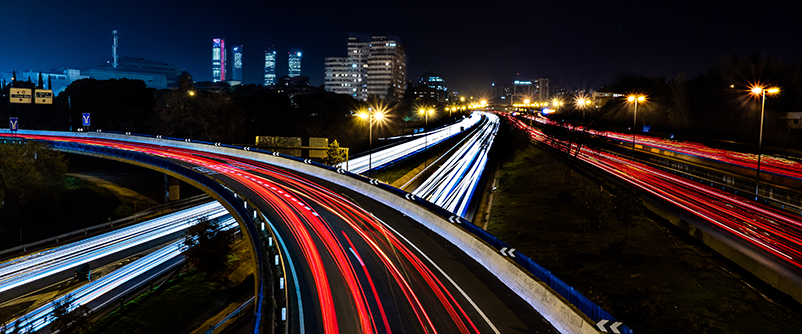
Don’t Drive Too Fast
Nighttime driving calls for you to drive at a sensible speed in relation to your environment. Whilst this looks different for everyone, drive at a speed that allows you to react to potential hazards in good time.
Needless to say, the faster you drive, the longer it takes you to stop and prevent an accident. And if you are forced to swerve at speed, there is a higher chance of you losing control of the car.
Keep Your Car Maintained
A well-maintained vehicle is less likely to experience faults. At the very least, make sure you have roadside assistance cover to make sure you don’t get stranded.
It’s also a good idea to clean your windows when you’re driving in the dark as dirt can cause light to disperse across the windscreen and impair your vision.
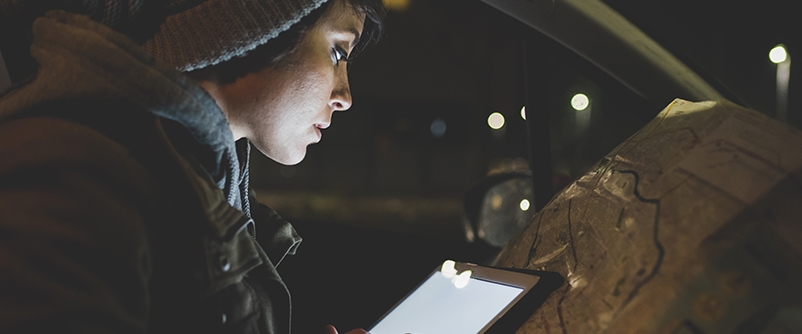
Equip Your Car For Emergencies
Regardless of the distance you are driving, it’s a good idea to plan for emergencies. No count you will have your mobile phone with you, but if you break down on a cold night, you will probably want a blanket.
A flashlight, spare tire, jump lead and first aid kit are also essential items. During the winter, also carry things like a de-icer and an ice scraper. We have written about essential items to carry in your car during winter in this article.
Drive Safe With Bettersafe
Bettersafe offers valuable insurance policies and roadside assistance cover to drivers in the UK. Whether you own a private car or hire a rental car, don’t risk financial loss due to an accident. Check out our private car excess and car hire excess insurance. We’ve got you covered to give you peace of mind.

